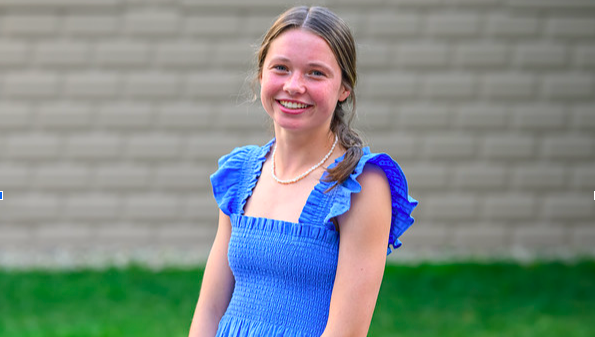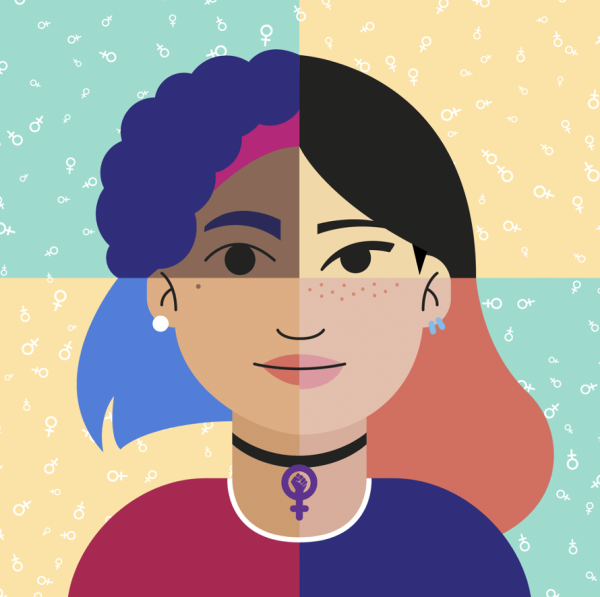Perplexing Personalities: Introverts, the MBTI, Social Media’s Distortion, and More
Introverts take time alone to recharge while extroverts take time with others to recharge.
Quiet. Reserved. Shy. All words I’ve heard time and time again used to describe me. I’ve even warranted the title “quietly intense.” I’m pretty aware of this perception of me, and I know my strengths and weaknesses well. For example, socializing has never come easy to me, but with the right people, I won’t stop talking. Another thing is that, after a long day at school, it is vital to my survival— okay, that might be dramatic — it is vital to my sanity and mental health to be alone for a while.
Introversion at its finest, if you ask me.
But what exactly is introversion? It seems that everyone has a different perception of the words “introverted” and “extroverted,” which is valid, considering how complicated the human person is. It can be difficult placing the entirety of your being into one box or the other. But where did these terms even come from? How did they evolve into the labels which we seem to throw at each other all too hastily? And is it possible to simply observe an individual and determine their personality? Let’s find out.
“There are two races on earth. Those who need others… exhausted and unnerved by solitude as by the ascension of a terrible glacier or the crossing of a desert; and those, on the other hand, who are… fatigued by others, and the detachment and imaginative activity of their minds bathes them in peace.”- Guy de Maupassant. 88 Short Stories
Oxford defines an introvert as “a shy, quiet person who is focused on their own thoughts and feelings,” which is by no means a fair encapsulation of the whole introverted persona. The word “introvert” also comes from the Latin roots “intro” and “verto,” meaning to turn within. Swiss psychiatrist Carl Jung explored this idea in his theories of introversion and extroversion. Jung wrote: “The extravert is controlled by his relationship to the thing without, the introvert by his relationship with the thing within.” These theories turned into the Myers-Briggs Type Indicator (MBTI) we see today. After answering a series of situational questions, it gives you one of 16 personalities determined by how you responded to the hypothetical scenarios. Unlike the MBTI, which gives your results on a scale of introversion to extroversion, Jung viewed the two as strict boxes, where no single person can be labeled as both. This comes with its confusions.
Some might be inclined to say they are “ambivert,” or both an introvert and extrovert, and those people often say that they like both being with people and being alone. This is not untrue, in fact, I’d be concerned if someone wanted to be alone 100% of the time or talking 100% of the time, but that has little to do with being an introvert or an extrovert. Introversion is often misconstrued as always wanting solitude or always hating being in crowded places, so those who like going out with their friends suddenly think they do not fit the specifications. The real defining characteristic of an introvert is ultimately where they get their energy. Introverts recharge better alone while extroverts are energized by being with people. Having good social skills is learnable and is not an accurate tell of introversion or extroversion.
The labels of “introvert” and “extrovert” seem to have lost this simpler meaning in modern times since the invention of social media and the popularization of the MBTI. Many of the personalities have been compressed and stereotyped in BuzzFeed quizzes, YouTube videos, and quick-read list articles that convolute the point of knowing your personality type, which is to improve yourself.
It is possible that popular culture and the fear of being basic or ordinary (see Chloe Stefani’s article on the misuse of the term “basic”) combined with the overwhelming speed and heavy presence of social media, have distorted the original intention of the MBTI and turned it into a popularity contest to seek both social and self-validation. Whole Internet schisms have made a big deal about the “rarest” personality, personalities to avoid, which is the best or the worst— crazy stuff like that. The question went from “How can I improve?” to “Who is the best?” in no time at all.
This is the age of social media where people are encouraged to change themselves to fit the ever-changing mold of society. And this doesn’t only apply to singular personality types, but also to introverts as a whole.
“Our culture made a virtue of living only as extroverts. We discouraged the inner journey, the quest for a center. So we lost our center and have to find it again.” -Anaïs Nin
People have been changing themselves to fit the mold of society forever, even before the interconnected era of the Internet. In Susan Cain’s Quiet: The Power of Introverts in a World that Can’t Stop Talking, she expands on the “extrovert ideal” which has impacted the way children have been raised since the 20th century, encouraging them to be approachable, good-natured spokesmen, businessmen, and leaders. This being the only known route to success since many years ago, introverts had to fake it to thrive in the working world. She said: “Extroversion is an enormously appealing personality style, but we’ve turned it into an oppressive standard to which most of us feel we must conform… Nowadays we tend to think that becoming more extroverted not only makes us more successful, but also makes us better people.”
That is why it is so hard to discern an introvert from an extrovert from the observable actions of a person. Many introverts have learned and mastered the art of sustaining a conversation with ease, while many, many more have admired from afar. In addition, Susan Cain also said: “Introverts are highly capable of acting like extroverts for the sake of work they consider important, people they love, or anything they value highly.”
So take a look around you. Have you ever wondered who might be an introvert? Maybe you notice someone in your family always gets irritated when you barge into their room and interrupt their quiet. You might notice some of your classmates are quiet and pensive at moments, but boisterous in other situations. Some of the extroverts in your life could actually be camouflaged introverts! There’s no way to know for sure without asking them.
Most importantly though, if you are an introvert, you don’t have to change yourself. Every personality is important, and the world wouldn’t operate if everyone was of a single personality type. At times I’ve struggled with this, wanting so bad to have the ease of speech that others do, but in the end I am who I am—strengths, weaknesses, and all.
Elyza Tuan Co-Assistant Editor-in-Chief
23etuan@montroseschool.org
















